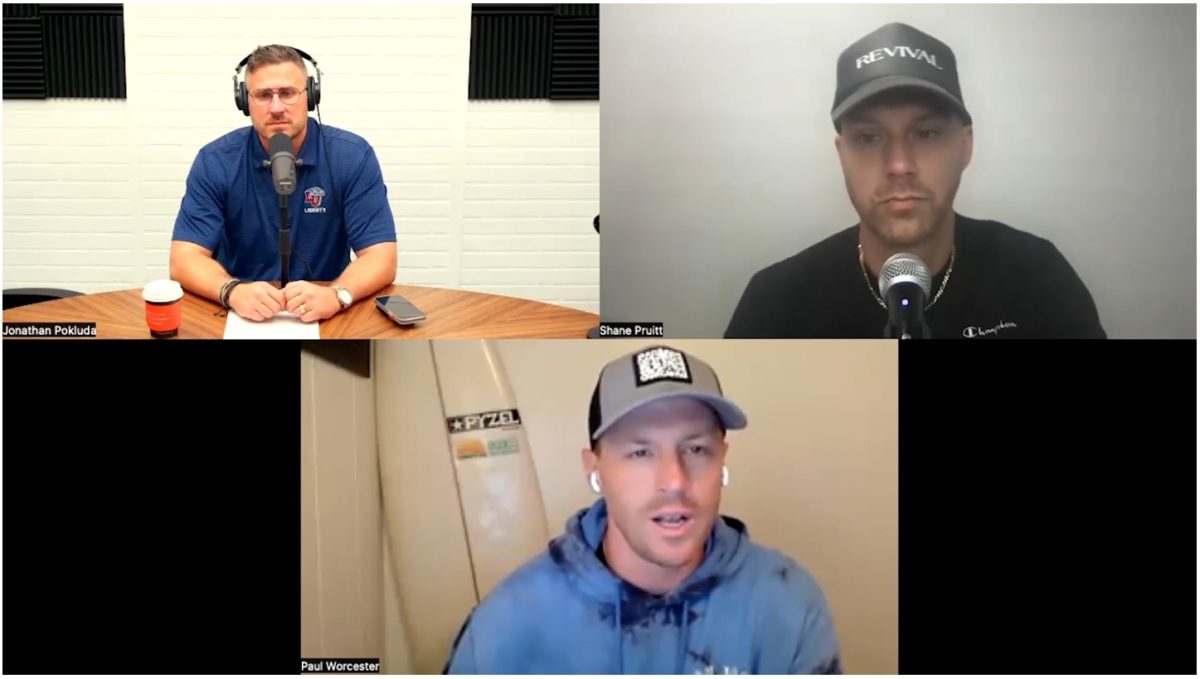The Apostle Paul might have been writing to the church at Ephesus when he advised believers to “be careful then how you live,” but hundreds of years later, the challenge remains true for students and their leaders.
Paul’s challenge to live “not as unwise but as wise — making the most of the time because the days are evil” (Eph. 5:15–16) was front and center during an Oct. 18 webinar, “Can I talk about that? How to talk through relevant, challenging topics with Gen Z students.” The webinar was organized by GenSend, the student-focused ministry and missions arm of the North American Mission Board.
Featured speaker Jonathan “JP” Pokluda, pastor and author, spoke to several issues facing student ministers today.
“If we look at this in a 21st century context and you were to make a list, what or how are the days evil?” Pokluda asked before offering his thoughts.
Some of the answers Pokluda proposed include subjects such as marriage, gender, sex, materialism, relationship problems and the sanctity of life. Concerns about creating division or receiving negative feedback have led to ministry leaders avoiding some controversial topics. That’s not the way, Pokluda said.
‘Hot topics’
Instead, “We’re going to use the word of God and attach it to the hot topics of our day because Gen Z and the young adults that are before you and the youth that are before you, they’re desperate for it,” he said.
“What does it look like to go and be the hands and feet of Jesus? What does it look like to go and have a really consistent message, but one that is rooted in love? … It’s having an attitude of “What can I do?” instead of “What can I do?” while being Spirit-led,” he said.
Jesus’ example of sacrifice should set the tone, he asserted, as opposed to the modern emphasis on self needs. And leaders must get comfortable talking about issues including fluidity of gender, gender roles, sexuality, pornography, sexual abuse and marriage, but he recommends not teaching on these topics in lieu of Scripture.
“If you just teach through the Bible, you’re going to hit on these topics. … Be aware of what those culturally charged topics are and don’t try to avoid them, but rather go after them,” Pokluda noted.
Involving and equipping parents is also important. Leaders need to develop a relationship with them, while informing them about what’s going on and providing related resources.
“If you’re emailing them [regularly], and you’re saying, ‘Hey, last week we talked about James, and the week before that we were going through Matthew, and this week we’re talking about gender fluidity,’ [it helps parents feel] like, ‘We have a relationship. We’re talking. And I know it’s good for me to have a periscope into what my children are learning,’” he suggested.
Welcoming church?
A question often asked today, Pokluda said, is “Do you guys welcome everyone?” when actually the questioner means “Will I be welcome here?” Pokluda said he always replies, “Absolutely.”
The person usually responds, “So, you’re not going to ask me to change?” to which Pokluda says, “We believe the Spirit of God is changing everyone. … We are all being conformed to the image and character of Jesus by the Spirit of Jesus.”
Pokluda concluded with one final piece of advice to leaders.
“It’s OK to say you don’t know. I would teach all of my young leaders the three words: I. Don’t. Know. Because when you’re young and everybody in a little circle is looking at you, you feel you have to have the answer. And that’s where you get into trouble.”
The webinar was hosted by Shane Pruitt, national next gen director for NAMB, and Paul Worcester, national collegiate evangelism director for NAMB.
To access additional resources, go to GenSend.org.






Share with others: